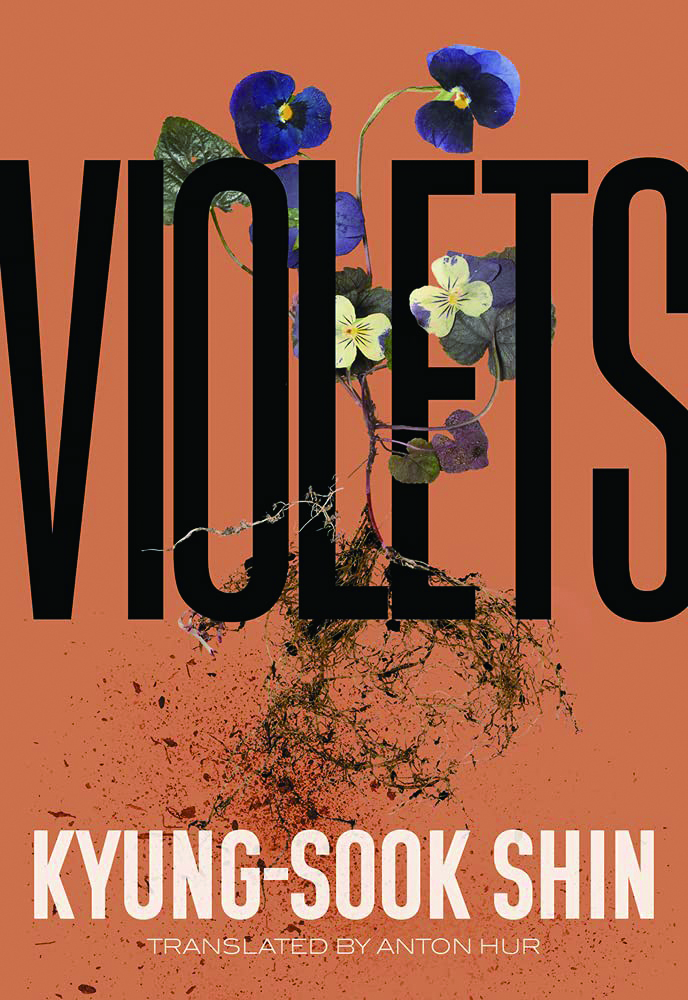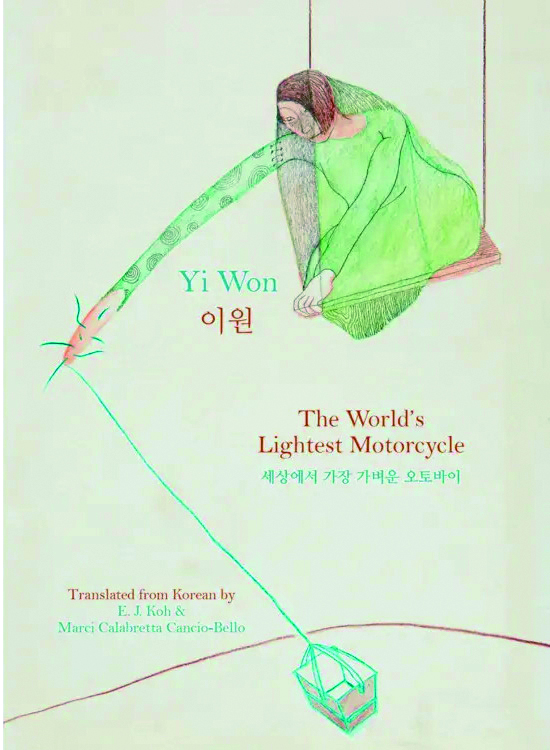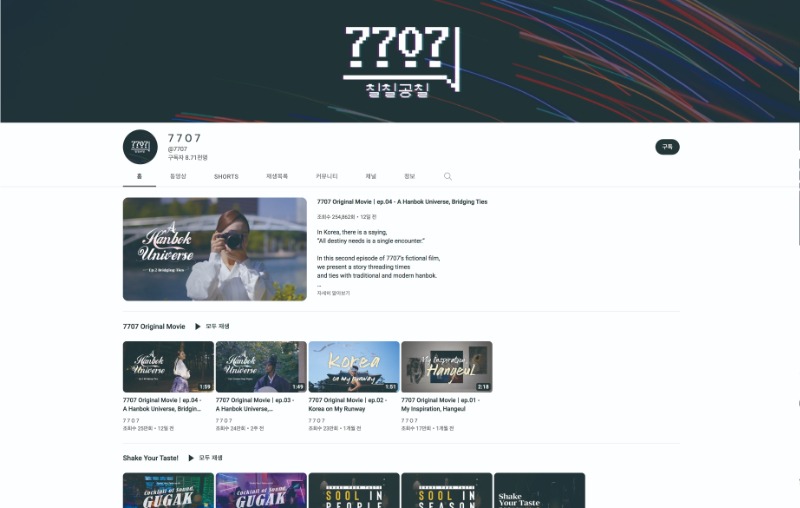‘Violets’
By Kyung-Sook Shin
Translated by Anton Hur
212 pages, $15.95, The Feminist Press: New York [2022]
A Frail Flower Blooms in the City

Oh San is born in a small village to a woman abandoned by her husband. An outsider in a village dominated by the Yi clan, San gravitates toward another outsider, a girl named Sur Namae. One day, near a vast minari field, while drying their clothes after playing in a stream, they share an encounter that will change both of them. Namae rejects San and what they shared, but the encounter awakens within San a longing to be loved. Abandoned by her best friend – and by her single mother every time a new boyfriend comes along – San becomes accustomed to betrayal and loneliness. As soon as she graduates high school, she leaves the village for the big city of Seoul.
Wanting to be a writer, San applies for a job at a publishing company, hoping to work with the writers she so admires. When this attempt fails, she then turns her attention to a flower shop, where the owner can only communicate by writing. After an odd interview with the owner, San is hired on the spot. The flower shop becomes a place of refuge for San, who finds comfort and healing among the cultivated blossoms. Indeed, she gives the flowers all the love that has built up so achingly inside her, even though, as the owner’s niece points out, watering them too much causes them to rot.
Yet not all is paradise among the green plants and colorful flowers. San is content, but in this contentedness she finds that the “ink in her heart” has run dry, and no matter how often she sets pen to paper, she cannot seem to summon the words she wants to write. Also, the flower shop cannot keep out the outside world forever. Into San’s refuge comes Choi Hyun-li, an arrogant, presumptuous man who flirts with her brazenly, and a photographer who is far less interested in shooting the violets he has been assigned to photograph than he is in taking pictures of San. The latter’s appearance in particular is the first wind that heralds the coming of a storm. The only question is whether San will survive the tempest.
“Violets” was actually written in 2001, “a time when,” the author explains, “women and stories of women were being systemically discriminated against and silenced.” Seoul has changed considerably in the two decades that have passed since the book’s first appearance in Korea. Some things remain the same – for example, the restaurant, Pomodoro, is still behind the Sejong Center for the Performing Arts. Others, like Korean society, have changed considerably. The #MeToo movement has given women more of a voice, more of an opportunity to tell their stories. But here as well, some things remain the same – stories of such victimization are still being written, and #MeToo is often seen as inconvenient, even prompting backlash among some. Thus, two decades later, “Violets” is still a story that needs to be told and, just as importantly, one that needs to be heard. No doubt it will remain so until that hoped-for day when it is no longer relevant.
‘The World’s Lightest Motorcycle’
By Yi Won
Translated by E. J. Koh and Marci Calabretta Cancio-Bello
128 pages, $16.00, Zephyr Press: Brookline [2021]
Gazing into a Mirror on Humanity

“The world’s Lightest Motorcycle” opens a window into the world of avant-garde Korean poet Yi Won. With the English translations presented alongside the Korean originals, it is as transparent a window as one could ask for, and it creates something that is greater than the sum of its parts. Readers who are familiar with Korean will be able to appreciate the challenge of conveying the spirit of Yi’s poetry in another language.
These poems deal with timeless and contemporary themes, such as the human experience of time and the interface of humans and machines. The reader will also find symbols flitting in and out of the shadows: a butterfly as the first sign of spring or a camel as a desert traveler; roads that are not simply byways but networks that bind the universe; and mirrors that do not merely f lip left and right, but turn the eater into the eaten. Above all, Yi’s poems defy easy interpretation, such as prose poems like “Time and a Plastic Bag” or “Tick, Tick, Tick, Tick,” which wield commas as a sharp knife to slice sentences into a thousand pieces. These poems are not just words on paper, but living, breathing and pulsing rhythms that force the reader to attend to their music and the images that they create.
‘7707’
Introducing Korean Culture to the World
http://www.youtube.com/@7707
Bringing Korean Culture to the World

“7707” is a new YouTube channel by the Korea Foundation that introduces Korean arts and culture to the world in colorful and creative ways. There are currently three playlists on the channel, with more to come. “K-Design” features, thus far, three short videos which showcase how design is embedded in various aspects of Korean culture: Korean cuisine elevated to an art form by fine-dining pioneers; traditional soban tables that take advantage of modern sensibilities and materials; and the careful craft of traditional embroidery in clothing and folding screens. In “Shake Your Taste,” sool (a Korean word that collectively refers to alcoholic beverages) sommelier Dustin Wessa introduces the ideal sool for every season and occasion along with the perfect food pairings for each. “Wrap Around the World” celebrates the 90th anniversary of the birth of Nam June Paik, the founder of video art. It weaves performances from new Korean artists into Paik’s original 1988 broadcast of the same title, a live satellite link-up that connected global audiences to the 1988 Seoul Summer Olympic Games.